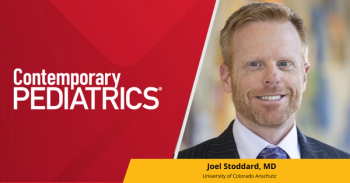
The toll of parental alienation on children
Parental alienation is devastating and toxic for the child.
Commentary
Based on current research, over 22 million adults have been targets of parental alienation in the United States. An estimated 10 million adults have experienced what they perceive to be severe alienation from their children.1 Even so, the clinical problem of parental alienation has been underreported and underappreciated in the public at large. It is a silent epidemic that must be acknowledged.
The rejection of a parent due to parental alienation is a devastating and tragic event for the child. Research clearly shows that children need both of their parents to be actively involved in their lives. The rejection of a parent is associated with many long-term, negative consequences for the child. Depression, anxiety, poor self-esteem, lack of trust in relationships, and self-defeating behavior are just some of the deleterious consequences.
Causing parental alienation in a child is on par with physical and sexual abuse. It is
A case of parental alienation needs to be investigated rigorously by the state’s protection agency, similar to what is done in cases of suspected physical or sexual abuse. To do otherwise is to miss the central point—that causing parental alienation is as toxic and damaging as these other forms of abuse.
Cases of parental alienation must be taken seriously by all professionals involved with the family. For example,
Attorneys for alienating parents must forcefully communicate to their clients that their alienating behavior is toxic and must stop immediately. Zealous representation of a client is not applicable in these alienation cases. In fact, confrontation of the alienating parent must be a top priority for the attorney, no matter how difficult or uncomfortable it may be. Short of that, attorneys will be condoning and enabling the alienation of the child.
Attorneys for alienated children—guardians ad litem—must take active steps to make sure the alienating parents stop their behavior while also assuring that the children get therapy to reverse their alienation.
Attorneys for the rejected or targeted parents must assure that reunification therapy is pursued with diligence and positive expectation so that the child’s alienation is corrected as quickly as possible.
In cases of physical and sexual abuse, the child is removed from the offending parent. That decision is not controversial. Similarly, a child who totally rejects the targeted parent due to parental alienation must be removed from the offending parent, at least temporarily. The removal of a child has been shown to be warranted and effective. In other words, removal of the child is the best option available.
Other professionals involved in a case of parental alienation—such as mediators, counselors, pediatricians, family physicians, teachers, social workers, and others—must play an attentive and corrective role in the process. Allowing alienation to continue unchecked is highly destructive to the child.
One final note: Mild parental alienation is much easier to correct than moderate or severe alienation. This principle must be kept in mind by all professionals who have contact with the child and the parents.
Parental alienation is a psychiatric emergency and interventions should be put in place as quickly as possible because it is as toxic and pernicious as physical and sexual abuse.
This article was originally published by sister publication Psychiatric Times.
References
1. Harman JJ, Leder-Elder S, Biringen Z. Prevalence of adults who are the targets of parental alienating behaviors and their impact
2. Blotcky AD. Parental alienation unlocked. Psychology Today. May 11, 2021. Accessed April 7, 2022.
3. Are there different degrees of parental alienation? PsychLaw. Accessed April 7, 2022.
4. Bensussan P. [Parental alienation, child psychological abuse and DSM-5]. Encephale. 2017;43(6):510-515.
5. Blotcky AD. Winning parental alienation cases: a roadmap for family lawyers. Family Lawyer Magazine. March 2, 2022. Accessed April 7, 2022.
Newsletter
Access practical, evidence-based guidance to support better care for our youngest patients. Join our email list for the latest clinical updates.






